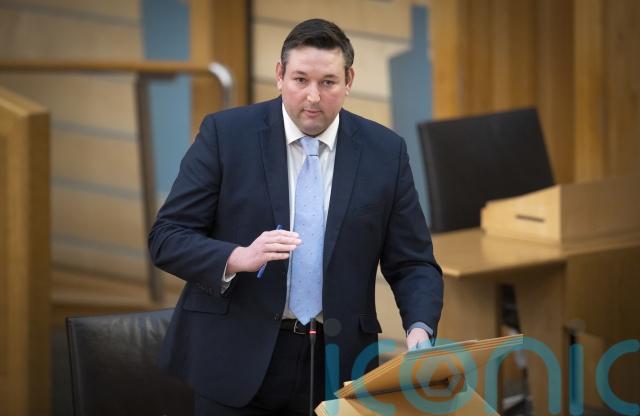
Councils are facing “increasingly difficult choices” on spending, a new report has warned, with two thirds of local authorities planning to use cash reserves over the coming year.
A new report by the Accounts Commission on the financial situation of Scotland’s 32 local authorities said that total debt had increased by £0.3 billion to £19 billion.
Looking ahead to 2022-23 it said there was a “budget gap” between income and spending of £0.4 billion – with two thirds of authorities set to use their financial reserves to deal with shortfalls.
However, the Commission said that this “reliance on non-recurring reserves is not sustainable in the medium to long term”.
Just over a third (36%) are planning on making savings as a result of budget gaps, the report revealed, with 16% planning increases in council tax charges to help with this.
The figures were revealed as the Commission warned that despite receiving additional funding to help deal with Covid in 2021-22, councils had “continued to face significant financial challenges” which had required “significant savings to deliver balanced budgets and increasingly difficult choices to be made about spending priorities”.
The report continued: “Councils are having to deal with a number of significant financial challenges and will need to make some difficult decisions with their spending priorities.
“At a time when councils and their communities are still feeling the impact of the Covid-19 pandemic, councils are now having to deal with the cost-of-living crisis and inflationary pressures.”
Councils received £20.3 billion in combined revenue funding and income from other sources in 2021-22, with this down by £0.3 billion on the previous year in real terms.
Almost a quarter of revenue funding (23%) was ringfenced for spending on specific areas or projects last year, the report added, with this up from 18% in 2020-21.

Accounts Commission chair William Moyes described the financial situation of councils as “increasingly fragile”.
He stated: “Councils are having to deal with the effects of inflation, the increasingly desperate cost-of-living impacts and rising demand for services, whilst at the same time delivering vital day-to-day services to their communities.”
He added: “To be financially sustainable, councils must deliver savings and reduce reliance on non-recurring reserves to fill budget gaps.
“If they are to find a safe path through the difficult times ahead, councils need to focus more on service reform, alongside meaningful engagement with their communities, about what services can be provided given the financial pressures they are facing.”
Conservative local government spokesman Miles Briggs said the report showed how “Scotland’s councils are now beyond breaking point”.
The Tory added: “This report must be a wake-up call for ministers to finally address the increasingly precarious position for our councils, and ensure they receive a fair funding deal.”
Mr Briggs said: “This damning report makes it clear that is only set to get worse for our local authorities.
“With a significant proportion of their budgets tied-up in ringfenced policy areas, councils have little room for flexibility due to orders from the SNP-Green government.”
Councillor Katie Hagmann, resources spokesperson for the local government body Cosla, said the report “clearly and impartially sets out the worrying state of council finances”.
She added: “Cosla has been absolutely clear over recent years that councils are facing extremely difficult financial choices due to real-terms cuts and increasing demand, now compounded by inflation, the cost-of-living crisis and the impact of Covid.”
With councils in an “extremely precarious financial situation”, she added: “There is a real danger that as well as cuts, some essential services may stop altogether – we have already seen reports in the media of what councils are considering.
“This is as a consequence of real-term cuts to the core budgets of Scotland’s 32 councils over recent years.”
A Scottish Government spokesperson said: “The Scottish Government recognises the crucial role councils and their employees play in our communities across Scotland and the challenging financial circumstances they face.
“The Scottish Government’s settlements from the UK Government have suffered a decade of austerity, with average real terms cuts of more than 5% equating to a loss of £18 billion. Despite this, local authority revenue funding is £2.2 billion or 22.9% higher in cash terms in the current financial year than it was in 2013-14.
“While ring-fenced funding is for increased investment in services like our schools and nurseries, local authorities will have autonomy to allocate over 93% or £12.3 billion of the funding we will be providing in 2023-24, plus all locally raised income.
“It is the responsibility of individual councils to manage their own budgets and to allocate the financial resources available to them on the basis of local needs and priorities.”
Subscribe or register today to discover more from DonegalLive.ie
Buy the e-paper of the Donegal Democrat, Donegal People's Press, Donegal Post and Inish Times here for instant access to Donegal's premier news titles.
Keep up with the latest news from Donegal with our daily newsletter featuring the most important stories of the day delivered to your inbox every evening at 5pm.